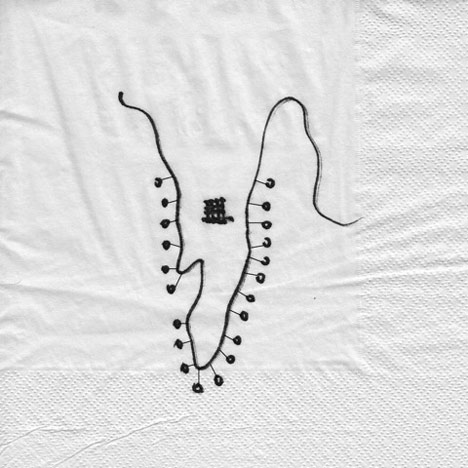Architect Filipe Balestra of Urban Nouveau has sent us his proposal for a series of towers built in the swamps surrounding Mumbai, sketched out on a napkin.
Balestra's idea is to allow expansion of the city without displacing the rubbish dump, recycling centre and homes at the city's centre.
Urban Nouveau previously developed a proposal for sensitively revitalising slums, which was featured in the Dezeen Book of Ideas – on sale now for just £12.
Here's some text about the concept from Urban Nouveau:
Bombay - maximum city, surrounded by water - is just in time to pick up an evolutionary strategy for the benefit of all. Dharavi - in the heart of Bombay - is one of the world’s largest urban villages. It contains the city’s garbage recycling centre and is the home of the cleaners, the taxi drivers and the people without whom the current urban processes are unfeasible.
What if, instead of moving the people of Dharavi to the outskirts of the city and using that land to build new housing, offices and leisure... all the necessary program would be built inside towers which rise from the shallow swamps that surround the city, branding Bombay with a new perspective: from the water. Existing Bombay remains as it is, and is incremented naturally. Pressure withdraws from the city centre. Dharavi stays.
Boats and bridges connect the shore with the new islands. The islands are easy to build because the water level is low. The respect for local flora and fauna is the starting point of this environmental and socially sustainable process.
Urban Nouveau is an interdisciplinary platform which supports an open network of human beings solving problems of everyday life. Urban Nouveau declares itself elastic to bridge formal-informal, legal-illegal, city-countryside in order to achieve appropriate balance in every challenge. Combining improvisation and intuition with research and expertise while performing on local and global issues, Urban Nouveau thrives on collective evolution.

